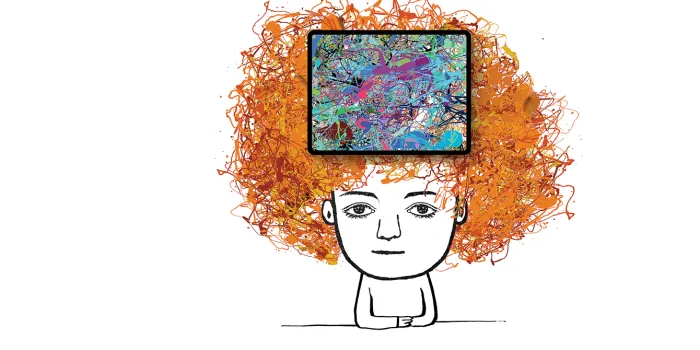Leigh Myers’ son spent significant time in the hospital for a surgical procedure when he was barely 1. After he came out of anesthesia, bandaged and hooked up to an IV, it was imperative he stay relaxed and somewhat still — a big ask for a toddler. Myers turned to screens.
“He was worried, scared, and in an unfamiliar environment,” she says. “We used screen time — animated videos — which I didn’t really use at home under normal circumstances. I would have read books to him or played games, but I just felt like the screen time was more effective for keeping him calm.”
It’s been a few years since her son’s hospital stay, but screen time is now a mainstay in his life, as it is for many children his age.
“I worry that too much screen time is not good for him,” she says. “I worry that it makes him anxious, overstimulated, and contributes to a short attention span.”
Finding Balance
For kids who have medical treatments that require limited movement for a while, screen time can be the ultimate soother. In certain cases, comfort should be first and foremost.
But it’s also OK to wonder whether screen time is the best pastime.
“While there are some potential benefits to be gained by technology — educational, social, and creative — we see a lot of basic needs being displaced by screen time. Kids need opportunities for physical activity, social engagement in real life, and adequate sleep, all of which may be compromised when screen time use becomes excessive,” says Jon Lasser, Ph.D., a professor of psychology at Texas State University and co-author of Tech Generation: Raising Balanced Kids in a Hyper-Connected World.
“Screens are not going away,” he adds, “and I’m not suggesting that children should completely avoid screens, but parents need to figure out how much their kids should have without experiencing some of the negative consequences.”
Signs of Overuse
Lasser says excessive use of screen time in kids can lead to a decline in grades, chronic sleep loss, negative mood when not on screens, reduced interaction with others, conflict when screens are denied, and no interest in activities outside of screen use.
How Much Screen Time Should Children Have?
American children average five to seven hours of screen time a day, spent on television, phones, computers, and video games, according to the National Library of Medicine.
The American Academy of Child and Adolescent Psychiatry recommends the following limits. Furthermore, experts advise turning off screens at least 30 to 60 minutes before bedtime to promote better sleep.
- Birth–18 months: Avoid except for video chatting with relatives.
- 18–24 months: Limit to educational programming with a caregiver.
- 2–5 years: Limit noneducational screen time to one hour per weekday and three hours on weekend days.
- 6 years and older: Use discretion — encourage healthy habits and limit activities that include screens.

